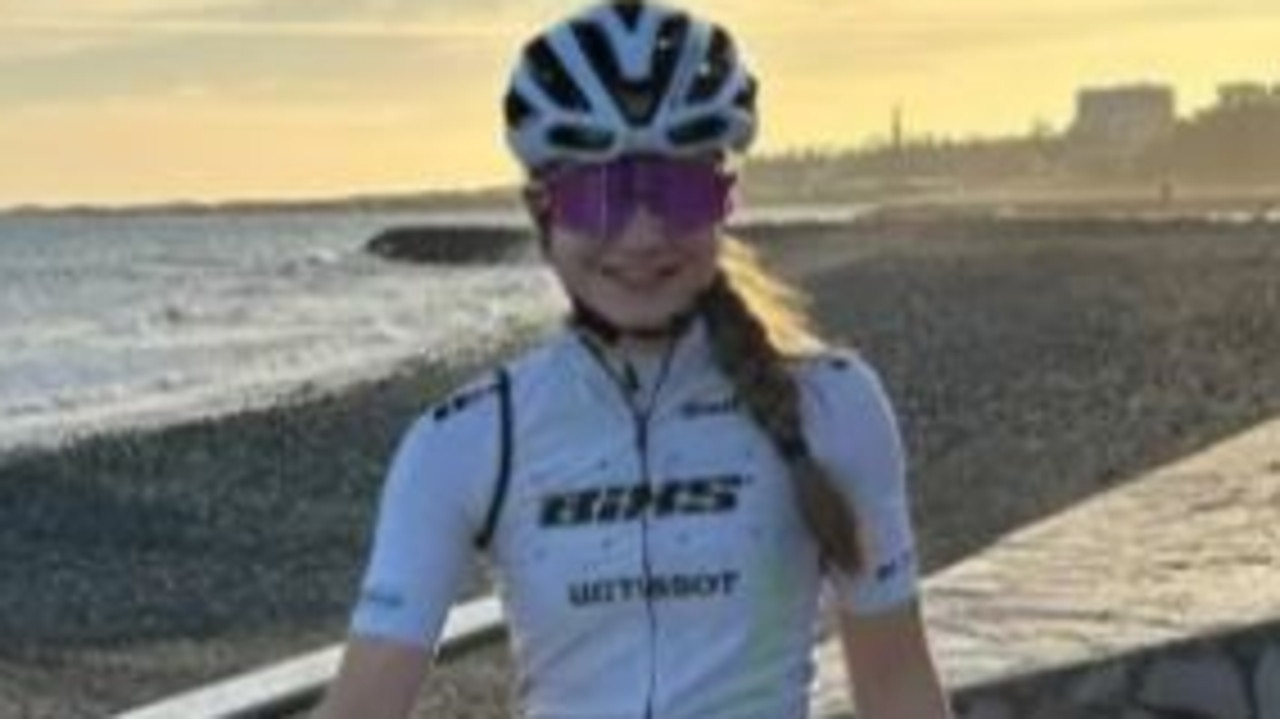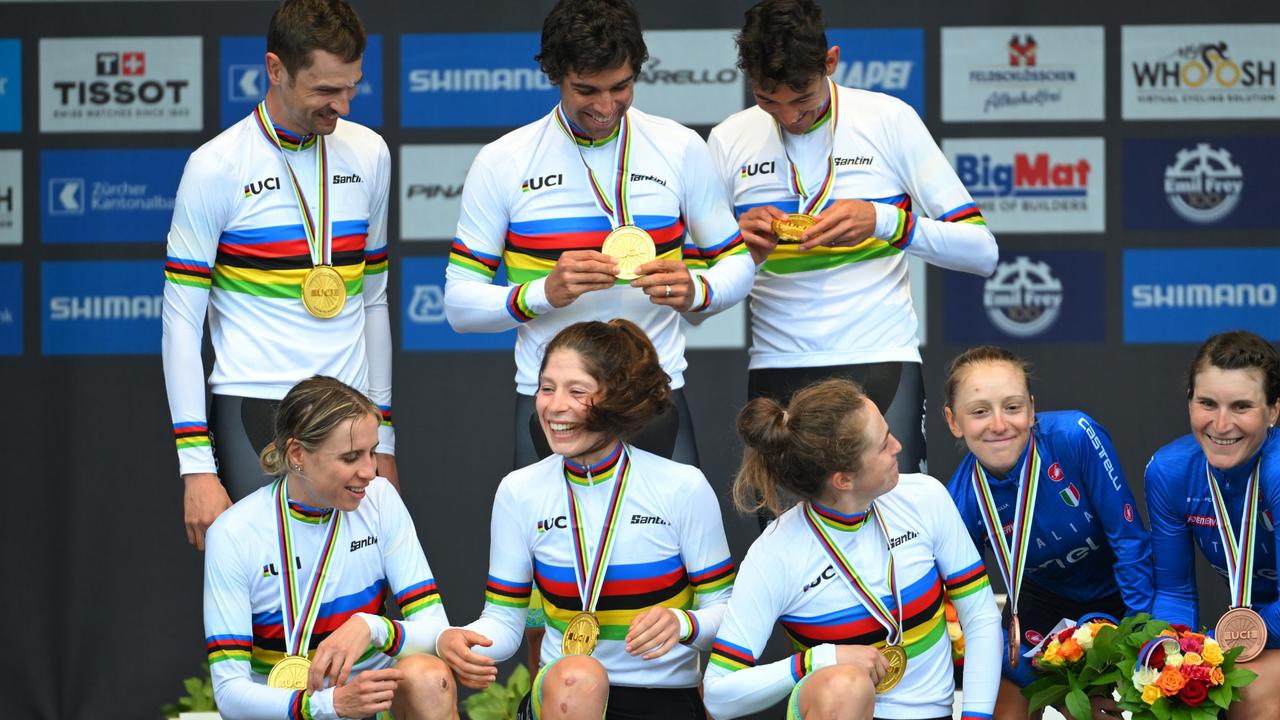Bradley McGee, Robbie McEwen and Mark Cavendish on the pain of riding Le Tour
BLACKOUTS, blurred vision and pain so deep in your bones that it hurts in your sleep. This is the life of a Tour de France rider.
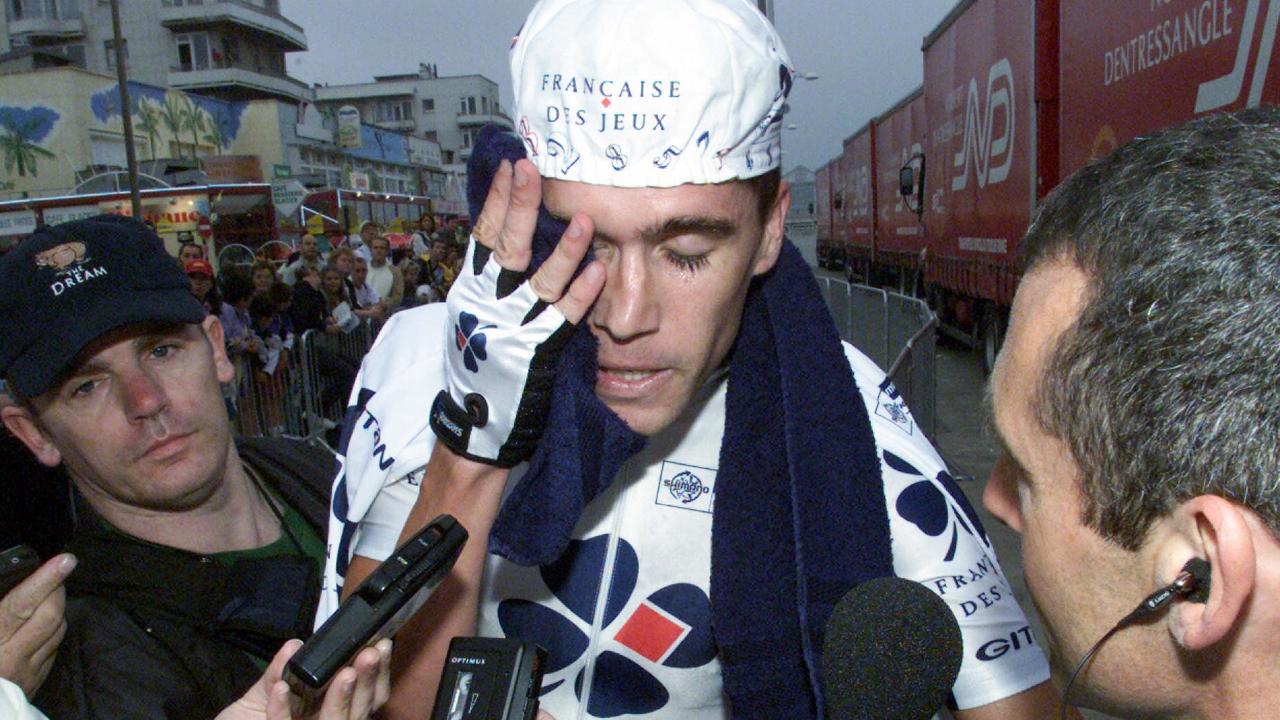
BRADLEY McGee had pushed his body so far and buried himself so deep in pain as he climbed the Col du Galibier during the 2005 Tour de France that he began to lose his vision.
His skin went cold and on the corners he kept riding into the hordes of people lining the roads who had to push him back in the right direction.
It was the most harrowing moment he would have at the world’s greatest bike race and it arrived at a time when you might least expect it — while crawling up, not flying down, one of its biggest mountains.
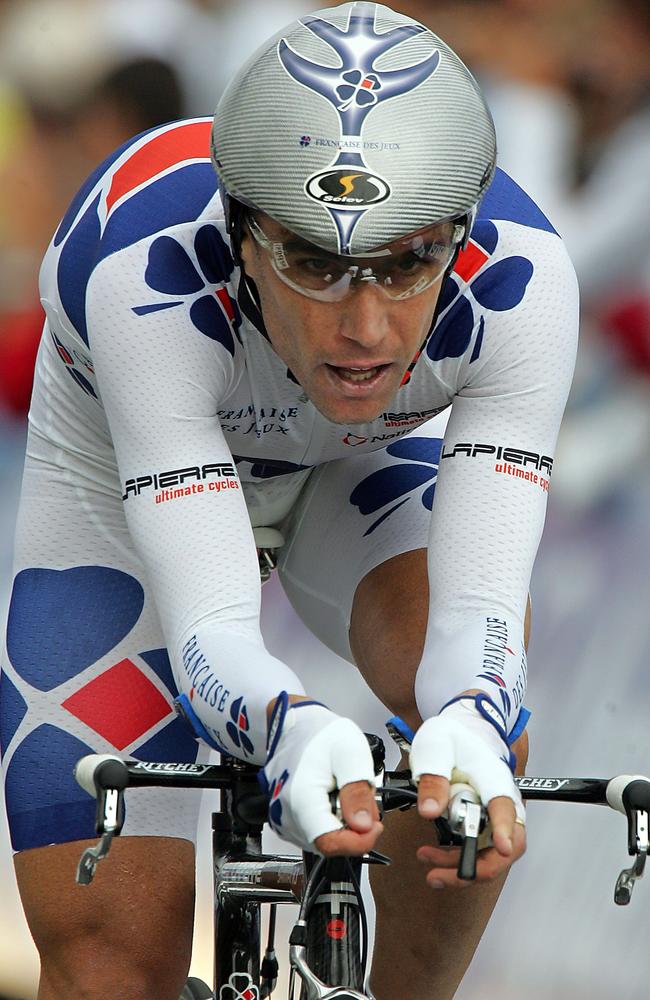
And it had nothing to do with his stage win in 2002 or wearing the yellow jersey in 2003.
It was Stage 11 and McGee still had 10 days of racing to make it to Paris, but had developed Hyperinsulinemia.
“Which is basically my insulin system became hyperactive and any carbohydrates I consumed would set the insulin off and start ramming sugar into my muscles,” he recalled last week.
“Very good for recovery and that’s probably why I was able to recover a lot, but it’s not what you want to happen mid-Tour de France stage.
“So I was having these sugar flats and as everyone knows, sugar flats are a pretty scary place to be — cold skin, blurred vision.
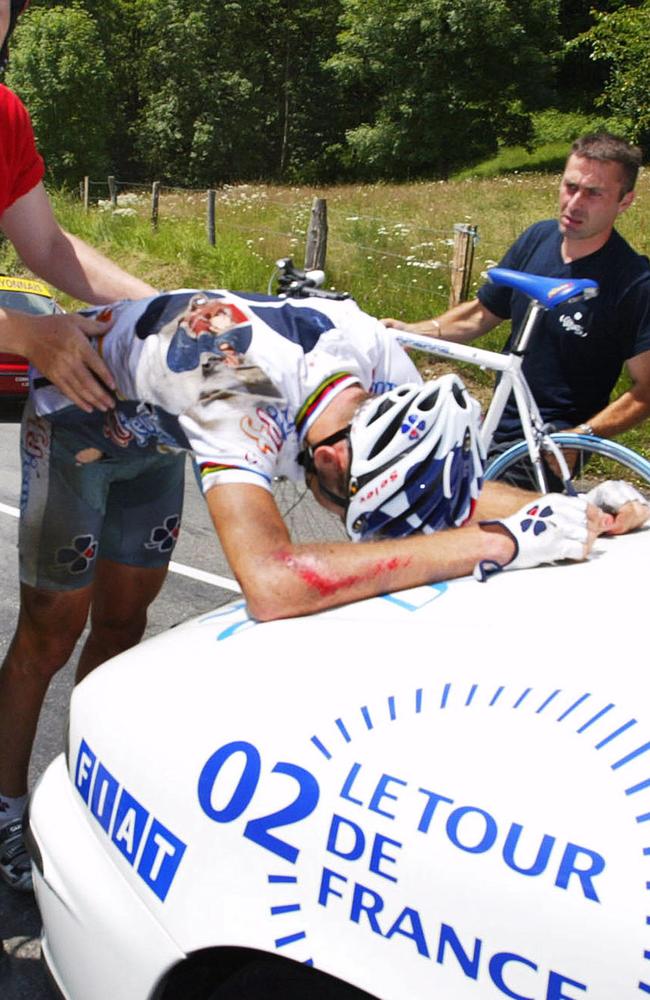
“I climbed over the Galibier 10 minutes down on the gruppetto (last group on the road) and I actually clipped out (of the pedals).
“I couldn’t see and on the switchbacks I was running into the crowd and they’d put me back on my bike.
“This was going on for a while and I thought ‘what am I going to do on the descent?’
“I was suffering like that pretty much every day in the mountains.
“I limped all the way to Paris and ended up coming out second on the (final) stage to (Alexander) Vinokourov.”
The Tour de France, of which the 101st edition begins today in Leeds in the UK, has been described as the hardest sporting event on the planet, where riders suffer day-in, day-out for three weeks to circle the country in 3500km by bike.
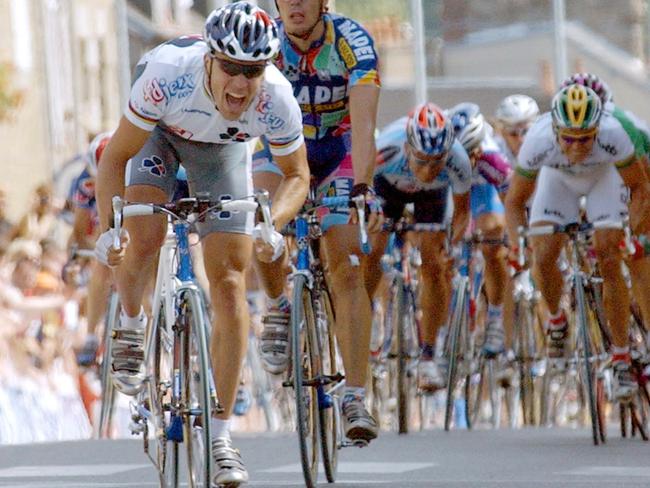
It’s not just the riding that makes the Tour so painful but the whole circus of the event.
A typical day has them out of bed by 7.30am, followed by breakfast, a team meeting, bus ride to the start of a stage, riding for six hours in the heat and over mountains, another 1-2 hour bus ride to where the next day’s stage will start, another team meeting, dinner and bed by 10pm.
But even then sometimes they can’t sleep.
There have been stories of riders taking so much caffeine and energy gels to get them through a race that their body is exhausted but their mind is still wired for hours after a stage.
McGee’s strategy in the Tour de France was to resist using caffeine until the final week of the Tour because he was aware of the pitfalls of relying on it too early.
“I would ride around for two weeks in the Tour with a caffeine gel in my back pocket unused,” he said.
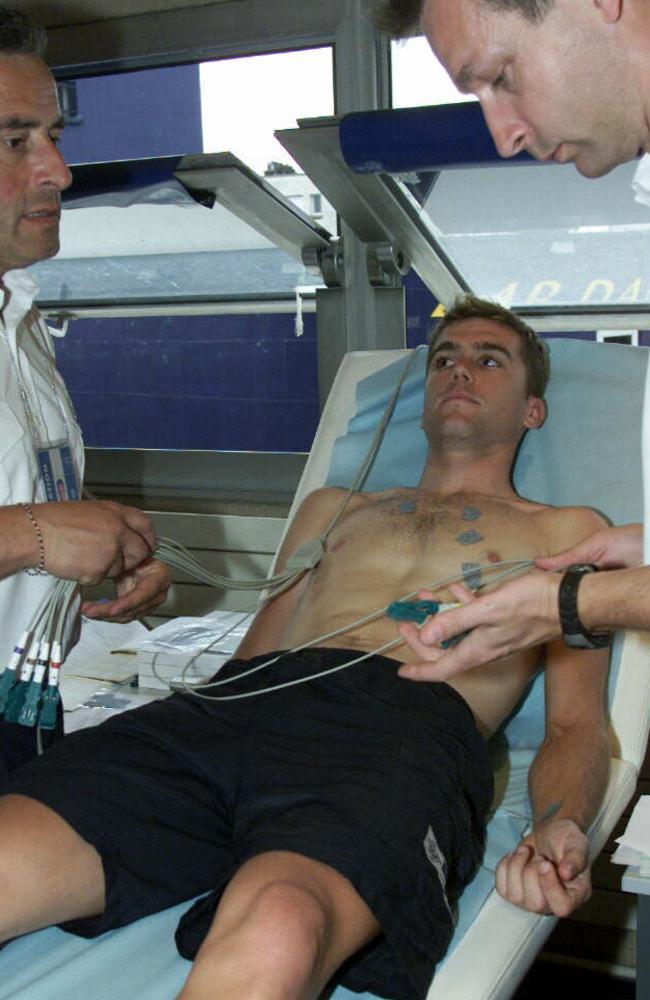
“Because you knew once you started popping caffeine products you’re destined to need them in other stages.
“And you look at riders riding anything less than the Tour (de France) and they’re loading up on caffeine gels, you think ‘well where are you going to go with that?’”
“And that’s a message I’m trying to get across to our young riders, with all the caffeinated products on the shelf, you don’t need it.
“Every drink is promoting that you need caffeine to do something when you don’t. Everything you need is already within.”
Australian sprinter Robbie McEwen won the green jersey as the strongest and most consistent sprinter in the Tour de France on three occasions between 2002-2006.
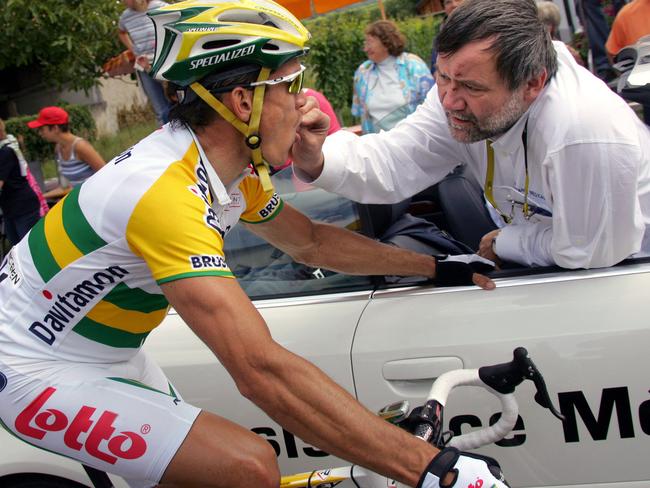
He retired in 2012 but in his biography titled ‘One Way Road’, he describes the pain of waking up each morning during the Tour as if it was “going right down into the marrow of my bones”.
He said during the Tour de France he would refuse to walk up stairs in his hotel because even walking down them was painful.
“The tiredness can be so deep that I wonder how I’m going to get up and get to the breakfast table,” McEwen writes in his book.
“It’s not the kind of tiredness that sleep can do anything about.
“Every day the race forces me to squeeze everything out of my muscles.
“If it’s a flat stage, I’ve got to physically hurt myself to sprint. If it’s not a flat stage, I’ve got to physically hurt myself to get over the climb at the same speed as everybody else.
“I’m stripping every ounce of glycogen out of my muscles and burning every tiny bit of fat in my body until there is none left.
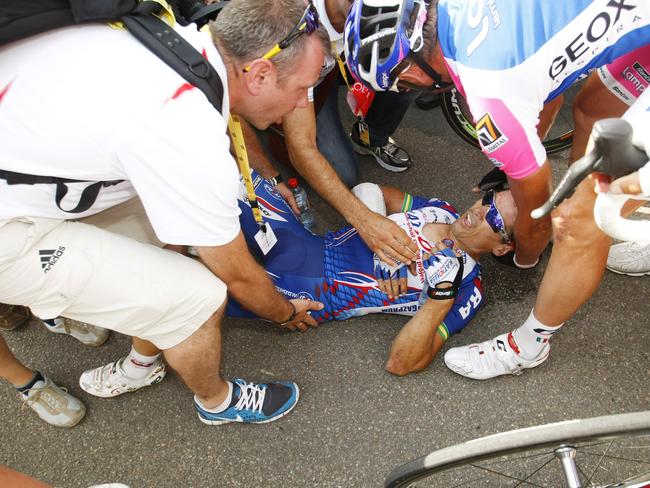
“By halfway through the Tour I’ve got veins popping out all over the place and the skin is hanging off my face. I look in the mirror and my face looks grey — it’s almost as if my body, in an attempt to scrape more energy out of itself, is starting to eat the very colour out of me.”
McEwen said his legs would hurt but so did his arms from holding himself up on the bike all day and team dinners reminded him of a meeting of “extremely sunburnt geriatrics”.
“I’ve had moments, especially during the final week of the Tour, when my whole body feels so hot, achy and filthy from the sweat and road dirt that I’ve wanted to stop, lie down on the grass at the edge of the road and go to sleep. Helmet off. Shoes off, just to let my swollen feet relax,” he writes in One Way Road.
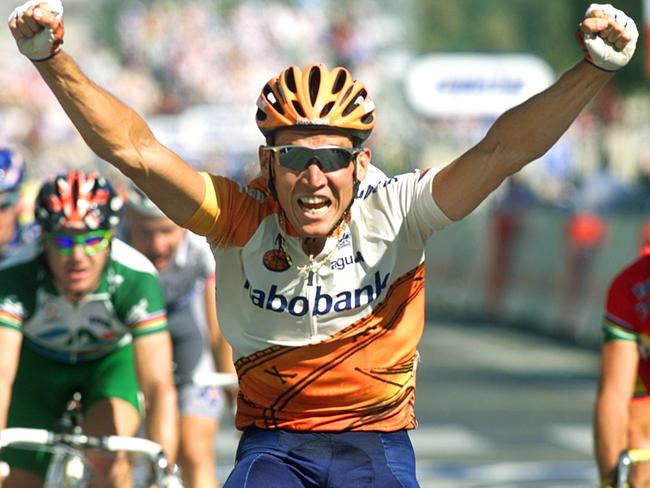
Isle of Man sprinter Mark Cavendish has won a record 23 stages of the Tour de France and shares a similar sentiment to McEwen when it comes to making it to Paris on the final day.
“Have you ever experienced that feeling of waking from a nightmare and being so engrossed in your imaginary car crash, science exam or God knows what other disaster that it takes a few seconds for reality and relief to set in?” Cavendish writes in his book titled ‘Boy Racer’.
“When you’re a professional cyclist, and specifically a Tour de France rider, that waking fear can be a daily occurrence with one, very crucial, difference.
“That very often when you open your eyes to the realisation that the true nightmare is the one due to begin in four or five hours’ time.”
But as painful as the Tour de France can be, McGee is quick to point out that he always finished it in better condition than which he started and certainly better than how he felt mid-race.
“Every Tour and Grand Tour I ever finished, I finished in better nick than I started,” McGee said.
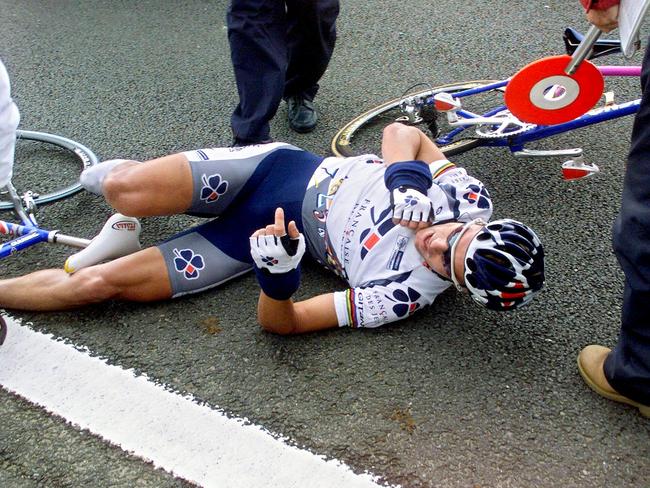
“I think there’s an acceptance that the body and mind sometime between day 10-15 and day 20 says ‘okay, if this is what you’re going to do, I’ll just get better’.
“And I’m of the convincing now that the body is invincible, people talk about overload and over training — I think that’s all bulls***.
“If you can come out of the Tour de France in better nick than you started, it shows the only thing lacking is recovery.
“Not just physical but clearing the mind and being ready for the barrage of intensity day in and day out.”
For the 198 cyclists on the start line in Leeds today, that day-in, day-out barrage is just about to begin.
Originally published as Bradley McGee, Robbie McEwen and Mark Cavendish on the pain of riding Le Tour

